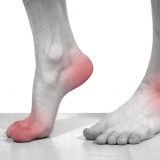

Signs and Symptoms
Most people associate memory loss with dementia, a condition that is common among the aging population, but memory loss alone is not necessarily a sign of this condition. Those showing signs of dementia usually suffer from a combined failure of least two brain functions. These include symptoms such as memory problems, trouble thinking well enough to perform activities of daily living, losing the ability to solve problems and control emotion, changes in personality and severe agitation. While aging certainly contributes to this condition, Alzheimer’s disease and stroke also contribute to dementia.
The Impact of Lifestyle Choices
It has been shown that dementia occurs most commonly in those with high blood pressure, high cholesterol, hypertension, and in smokers. These conditions all have a lifestyle component to them. While all cases are not necessarily brought on by behavior alone, our choices certainly contribute to all of these conditions. Therefore we can have a significant impact on our chances of developing dementia simply by making wiser lifestyle choices.
4 Prevention Tips
Research is finding that there are things you can do to decrease your chances of developing dementia and decreasing the symptoms if you are already showing signs of the condition.
- 1Studies show that physical exercise increases blood flow to the brain and body, providing additional nourishment and reducing high blood pressure, diabetes and high cholesterol – all associated with an increased risk of dementia.
- A healthy diet provides complete nutrition and will help to maintain a healthy weight and normal cholesterol levels, going a long way toward general good health and reducing or eliminating symptoms of dementia.
- Studies show that engaging in cognitive activities such as reading and puzzles helps keep the mind sharp and continuing to develop rather than allowing mental functions to atrophy. Elderly and retired people are encouraged to find some way to engage their minds, through volunteer work, taking classes, reading, learning a new skill, or gathering in groups to learn something new.
- Social interaction is another important factor in reducing and eliminating dementia. Social engagement improves people’s moods and coping abilities, reducing stress and increasing cognitive functions. Regular social interaction improves quality of life on many levels and has been shown to reduce the symptoms of dementia.
While the number of Americans with dementia is rising rapidly, the rate of developing this condition is slowing as a result of overall education and healthier lifestyle choices. Eating right and exercising regularly may not completely mitigate signs and symptoms of dementia, but may improve quality of life significantly, allowing the sufferer to maintain some independence. Reducing the chances of developing dementia is yet another reason to make healthier choices.
Editor’s Note: Natural Wellness’ Brain Support is a natural remedy to improve mental focus, concentration and memory today and for years to come.




